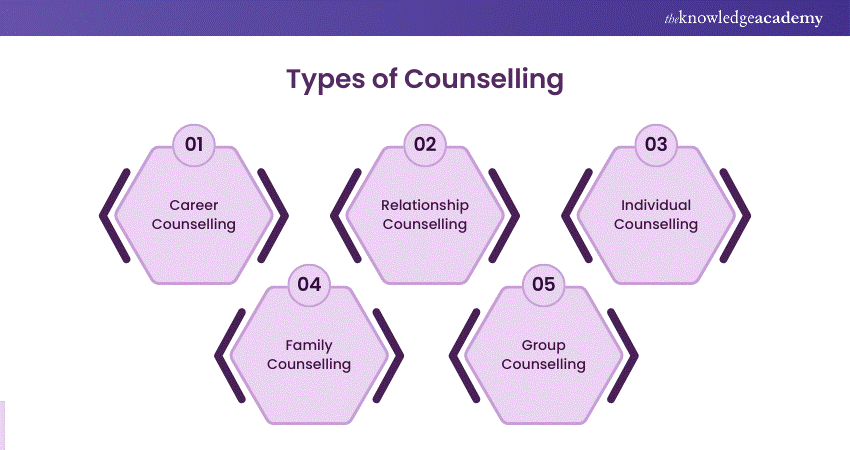When is relationship therapy the Right Choice for You?
Exploring the Benefits of Virtual Therapy in Modern Mental Healthcare
The surge of virtual therapy marks a significant change in mental wellness care. It provides enhanced access, enabling individuals from varied histories to look for help without geographical restrictions. Adaptability in scheduling suits varying way of lives, while the convenience of home can foster openness. However, the ramifications of these modifications extend beyond plain ease. The advancing landscape of therapy increases vital inquiries about its long-lasting results on client involvement and therapy outcomes.
Improved Accessibility for All
Although conventional therapy commonly offers obstacles such as geographical area and organizing conflicts, virtual therapy considerably improves access for individuals looking for mental health and wellness assistance. By eliminating the demand for physical traveling, virtual therapy allows customers from remote locations or those with wheelchair obstacles to get in touch with certified specialists. This setting of therapy can reach underserved populaces that may lack regional mental health and wellness resources, therefore attending to variations in accessibility to care. In addition, virtual platforms can cater to diverse requirements, providing services in several languages and suiting numerous social histories. Clients can engage with a broader series of experts, offering them with choices that align with their details demands and preferences. This boosted access cultivates a much more comprehensive environment, permitting individuals to seek assistance without the stigma frequently connected with in-person visits. Overall, virtual therapy represents a significant development in making psychological healthcare extra obtainable to all.
Versatility in Organizing Procedure

As virtual therapy remains to obtain grip, its fundamental versatility in organizing sessions verifies to be a considerable advantage for many people. Unlike typical in-person therapy, virtual therapy enables customers to choose session times that ideal fit their individual and professional commitments. This adaptability fits those with requiring work schedules, family members obligations, or various other dedications that can make attending physical visits challenging.
Customers can conveniently reschedule or readjust their sessions as required, lowering the anxiety associated with stiff consultation systems. The accessibility of various time ports throughout the week, including nights and weekends, better improves accessibility. This versatility not just encourages consistency present but also promotes a higher commitment to the therapeutic procedure. Inevitably, the adaptability in organizing sessions stands for a transformative shift in mental wellness care, equipping individuals to prioritize their health without compromising various other facets of their lives.
Comfort of a Familiar Setting
The convenience of an acquainted setting significantly boosts the efficiency of virtual therapy for several clients. Taking part in therapy from the safety and security of their very own homes allows people to really feel even more at convenience, decreasing anxiety that might come with standard in-person sessions. This familiarity can facilitate open interaction, allowing customers to reveal their ideas and feelings much more openly.
The presence of personal things and the capability to control their surroundings can contribute to a feeling of protection and leisure. Customers frequently report that remaining in a comfortable space permits them to concentrate a lot more on the therapeutic process as opposed to the setting itself.
In addition, the casual nature of virtual sessions can aid liquify obstacles that may exist in a standard office setting, promoting a much deeper connection with specialists. Overall, the comfort of familiar surroundings plays a necessary role in improving the therapeutic experience and performance for many individuals seeking psychological health and wellness assistance.
Wider Series Of Healing Alternatives
A wider series of healing options comes to be readily available via virtual therapy, allowing clients to access various methods that might not be possible in standard setups. This adaptability allows individuals to discover diverse methods such as cognitive-behavioral therapy, mindfulness methods, art therapy, and also specialized treatments like trauma-informed care or dialectical actions therapy.
Clients can select from a more comprehensive spectrum of specialists, consisting of those who specialize in specific niche locations or certain populaces, improving the chance of discovering an appropriate suit. Virtual systems usually give access to group therapy sessions, assistance neighborhoods, and workshops that might be geographically not available or else.
This range equips customers to participate in their recovery procedure according to their one-of-a-kind preferences and requirements, possibly raising inspiration and dedication to treatment. Consequently, the landscape of mental health care ends up being more inclusive and versatile, satisfying a wider selection of specific experiences and challenges.
Reduced Preconception Surrounding Therapy
Accessing therapy through virtual platforms contributes to a considerable decrease in the preconception traditionally connected with psychological healthcare. By giving a very discreet and exclusive setting, virtual therapy enables individuals to look for help without the concern of being judged or determined. This anonymity attract those that may otherwise be reluctant to go after in-person therapy as a result of social understandings bordering psychological wellness.
As the frequency of virtual therapy increases, it stabilizes the conversation around mental health, making it a more appropriate part of day-to-day life. People commonly really feel a lot more comfortable reviewing their experiences online, advertising visibility and minimizing feelings of isolation. The access of these services likewise urges a wider group to engage with psychological health resources, cultivating a culture of support instead of pity. Ultimately, the rise of virtual therapy plays a crucial function in improving attitudes towards looking for assistance, adding to a much more accepting culture concerning mental wellness challenges.
Cost-Effectiveness and Cost

Lowered Session Expenses
Many individuals looking for psychological health support find that virtual therapy considerably decreases session prices contrasted to traditional in-person choices. The elimination of travel costs and pause job commonly adds to overall financial savings. Furthermore, numerous virtual therapists supply affordable rates because of lower overhead expenses connected with preserving a physical workplace. This change in expense enables customers to accessibility high quality psychological health and wellness services without the financial stress that may come with conventional therapy. For several, this cost enables a lot more regular sessions, which can enhance treatment results. Therefore, virtual therapy not only democratizes access to psychological wellness care yet likewise provides a sustainable monetary model that straightens with customers' spending plans, making psychological health assistance much more possible for a wider target market.
Broadened Access Options
While traditional therapy frequently provides logistical obstacles, virtual therapy substantially expands accessibility options for individuals looking for mental healthcare. By eliminating the demand for traveling and allowing adaptable organizing, virtual therapy accommodates diverse way of livings and commitments. This ease of access is especially advantageous for those in remote areas or with flexibility obstacles. In addition, the cost-effectiveness of virtual therapy decreases monetary strain, making psychological health solutions a lot more obtainable. Lots of systems offer tiered prices or moving scale charges, promoting cost. Insurance coverage business significantly recognize virtual low cost therapy therapy, more boosting its monetary access. Generally, virtual therapy not just broadens the scope of who can obtain care yet additionally addresses financial obstacles, making psychological health support more comprehensive and obtainable for all.
Improved Connection of Care
Boosted continuity of care emerges as a considerable benefit of virtual therapy in modern mental healthcare. This approach enables people to keep consistent interaction with their therapists, no matter geographical barriers or organizing problems. low cost therapy. The versatility of virtual sessions promotes normal check-ins, which are essential for keeping track of progress and adjusting therapy intends as necessary
Furthermore, digital health documents and telehealth systems help with smooth information sharing amongst treatment providers. This interconnectedness ensures that all specialists entailed in a person's treatment are updated on therapy advancements, bring about more worked with and effective interventions.
Clients commonly experience minimized stress and anxiety and enhanced involvement due to the comfort of accessing therapy from acquainted settings. Such availability enhances adherence to therapy programs, inevitably boosting results - couples counselling. To sum up, virtual therapy not just bridges voids in mental health and wellness services however additionally strengthens the connection of treatment, a vital component of effective therapeutic connections
Frequently Asked Questions
How Does Virtual Therapy Make Certain Discretion and Personal Privacy for Clients?
The current inquiry addresses the procedures virtual therapy uses to shield customer confidentiality. Making use of encrypted platforms, safe logins, and conformity with laws like HIPAA, virtual therapy guarantees that sensitive info continues to be private and hard to reach to unauthorized individuals.
Can I Switch Therapists Easily in Virtual Therapy?
Changing specialists in virtual therapy is normally simple. Clients can communicate their desire for an adjustment via the system, enabling adaptability in locating a better match without the logistical obstacles of in-person visits.
What Technology Do I Required for Virtual Therapy Procedure?
To join virtual therapy sessions, an individual commonly needs a trusted net link, a computer or smartphone with a video camera and microphone, and access to a safe and secure video conferencing system specified by their therapist.

Are Virtual Therapy Sessions as Effective as In-Person Sessions?
Current research studies indicate that virtual therapy sessions can be just as effective as in-person sessions, depending upon the person's preferences and scenarios. Factors such as convenience and ease of access might boost the overall therapeutic experience for some clients.
What Should I Do if I Experience Technical Issues During a Session?
If technical problems occur throughout a session, one must comfortably connect the issue to the therapist, effort to reconnect, or button to a backup technique. Persistence and flexibility are crucial in handling these disturbances.